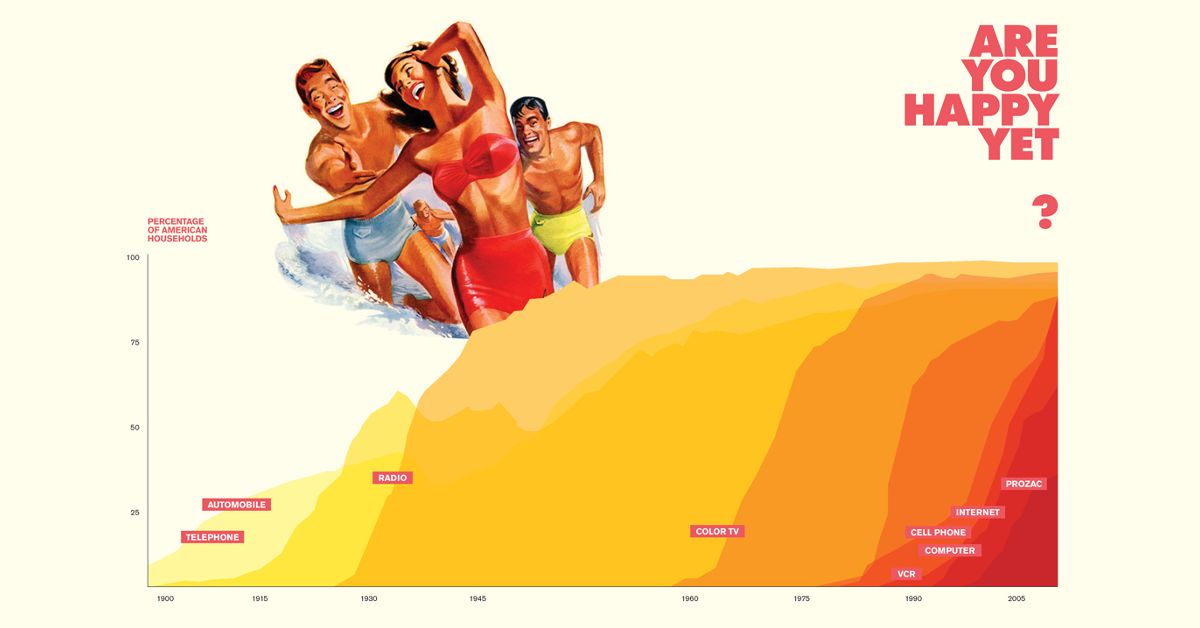“Values are our anchors for decision-making and our beacons for behavior.”
I once bought a Ford Pinto because it got better mileage than the Pontiac Bonneville convertible I was driving at the time. It was the worst car decision I have ever made. The Pinto turned out to be unreliable and didn’t even get even get very good mileage. When I traded it in after one year, it was already on its last legs. This one-value decision cost me a lot of frustration, grief, and regret. Yup, I got seduced by a false promise on one value that led to unreliability, bumpy roads, and a long-term disaster. Plus, it was a dangerous car.
Many people choose careers based on one value. For example, hedge fund managers may think they are going to make a lot of money, but not many find blissful happiness in that job. More and more students are going to Wall Street instead of into public service in hopes of getting rich quickly. Career decisions based on one value will likely end up with the person feeling empty, miserable, and/or completely stressed out. Getting sucked into the money game can lead to misery, compromised integrity, and false representation.
We can see the wreckage of one-value decisions in practically every domain of life: People who marry because of physical attraction; people who buy a house because it has a big pool in the backyard; people who choose party schools because they hear stories of students having so much fun. Choosing a spouse, a house, or a school based on one value can have unintended consequences. I’ve been lucky with in the house and spouse categories, but I’m still paying the price for the school I chose. All of these examples speak to our vulnerability to let a single predominant construct in our decision making preempt our willingness or ability to perceive or evaluate other options.
We’re seeing the fall-out of pre-emptive, one-value decisions in American politics. Many people chose to vote for the current president because of one of the following values:
Lower taxes: “I’ve worked hard to make this much money. Why should I give it to the government?”
Less regulation: “How am I supposed to compete with all of these burdensome regulations like not being able to dump waste into streams?”
Abortion: “A woman shouldn’t have the right to choose to end a pregnancy no matter what the circumstances.”
Gun Rights: “I have a right to have any kind of weapon I want.”
Immigration: “We need to keep bad people from crossing our borders and taking our jobs.”
Civil rights: “Not everyone should have the right to marry.”
America First: “We can’t be the policeman to the world and why are all those cheap goods coming into the country without tariffs?
Cultural elitism: “I get so angry when those arrogant, coastal elites assume I must not be as smart or informed as they think they are.”
If I were to demonstrate empathy to Trump voters, I might make two responses:
“You feel angry because immigration and globalization threaten your well-being, cultural elites look down on you, and big government taxes and regulates you,”
“You feel afraid because demographic and cultural shifts are threatening white supremacy, church teaching, and your rights to carry a gun.
Apparently, these feelings and “values” are more important to 45% of Americans than they are willing to admit. Otherwise, how can they justify the violation of so many other values upon which this Nation was built. In his virtual graduation speech to 2020 graduates, Obama urged young people to pursue the values like respect, community, and honesty instead of greed and selfishness. Oh, how I hope that happens.
Here are a few examples from a list of leadership values I defined in a previous post: https://rickbellingham.com/2020/04/22/leadership-values-a-to-z/
- Justice
- Fairness
- Decency
- Integrity
- Innovation
- Interdependence
- Freedom
I know several very bright, anti-abortion people who are willing to overlook how Trump butchers these values on a daily basis because they know he is stacking the Supreme Court to overturn a woman’s right to choose. Pick any one of the values from the first list and I’m sure you can identify a Trump supporter who continues to look the other way while Trump continues to destroy most of the 75 leadership values I defined. I’m sure, as a reader of this blog, that you could list multiple examples of how his behaviors have undermined every one of those values. And what’s crazy is that the people who support him would say those values are important to them as well. Evidently, not important enough to even entertain the truth.
Daniel Kahneman, a Nobel prize winning professor at Princeton University, has conducted ground-breaking research which reveals that people are more inclined to look for stories to support their beliefs than they are willing to look for facts in search of the truth. Here are some additional research-based facts that pour fuel on that fire:
- Researchers at Yale, Northwestern and M.I.T. conclude that a lying demagogue will have authentic appeal if the political system is seen as flawed or illegitimate. The demagogue claims to be the champion of those who feel disenfranchised by the elite establishment. The Authentic Appeal of the Lying Demagogue: Proclaiming the Deeper Truth about Political Illegitimacy,”
- Steven Webster, the author of American Rage, suggests that Trump attracts and maintains the devotion of his supporters because he is angry at the “right” people, institutions, and organizations.” He is not only a vehicle for voter anger, he is also a perpetrator. Webster concludes that many of Trump’s supporters simply disregard his lies and distortions because they are angry.
- When people are anxious, they seek out new information. When they are angry, they mentally retreat and become more entrenched behind the positions they believe to be true. Anger essentially precludes any attitudinal change. Trump not only taps into his supporters’ anger and fear, but he also enhances his persuasiveness with his confidence and lack of doubt. Paraphrasing Rousseau, people would rather be wrong than uncertain.
- We know that the worst leaders are those who are decisive and wrong. Those two characteristics describe Trump perfectly.
So, as we approach the November 3rd, 2020 elections, I would encourage you to find out which feelings, values and beliefs are driving any person you may know who continues to support Trump. Then, inquire civilly which of the 75 or so other values they are willing to sacrifice and which 10,000 facts that are willing to deny in order to satisfy their one over-riding value and/or predominant feeling or belief. Warning: this task will not be as easy as you may think. Almost 50% of white protestants believe that God chose Trump to be President – good luck changing that belief with facts.
The ugly truth is that this election depends on how many people in 6-10 states will let their pet feelings, values and beliefs trump the truth about what’s going on in this country.
If enough people in those states can’t be convinced to give due consideration to essential values and critical facts, then we can count on America becoming a Pinto instead of a Porsche – unreliable, bumpy, and dangerous. (To be clear, Trump is a pathetic Pinto pretending to be a powerful Porsche). We can count on America feeling like a bad career – miserable, stressful, and compromised by fake news and misrepresentation. We can count on America in which plenty of people will drown in the back-alley swamps constructed by this administration. We can count on the 1% getting a whole lot richer while the bottom 90% are left further behind. Oh yes, there will be wild parties in the frat house, but no celebration on Main Street.
So, if you happen to come across anyone angry enough and/or afraid enough to want to stay married to Trump for another four years – and then to Jared and Ivanka for eight years after that – wish them well as we all end up in hell. May it not be so.
In this coming election, American voters need to ask three key questions:
- What are our anchors for decision-making?
- What are our beacons for behavior?
- Is our “truth” based on facts or beliefs?
Related to these three questions, parents and teachers could up their game as well by helping their charges name their feelings, clarify their values, and question their beliefs. Imparting those three skills could go a long way toward educating our youth to make better decisions in their own lives, in their local communities, and in the national arena.
The Covid-19 crisis has exposed the realities of the current administration and who we are as a country. Naked self-interest drives decision-making. Self-aggrandizement is the goal of leadership behaviors. And, there is minimal consideration for facts, science, and truth – just endless stories and conspiracy theories to reinforce base feelings and beliefs in a ruthless pursuit of political positioning. This November will determine who we want to be in the future.
May the desire for fairness, decency, honesty, Integrity, Innovation, Interdependence and freedom over-ride the anger and fear driving erroneous beliefs. A one-value decision in November will lead to more misery than the worst car, career, or marriage you could possibly imagine.




Beautifully stated Ricky! I forwarded it to Reuben